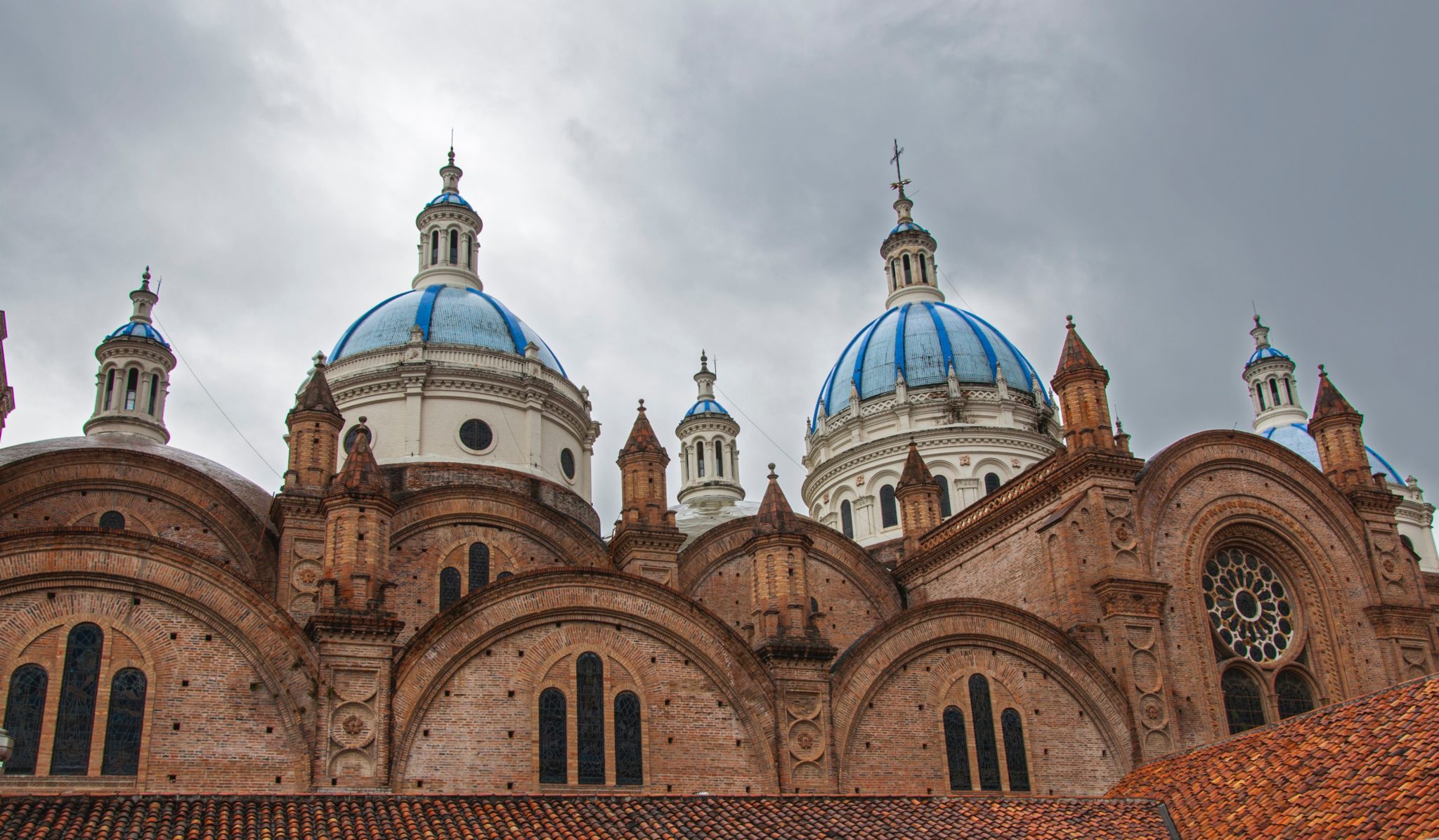With improved national security levels, education, infrastructure and social development, Ecuador welcomes increasing numbers of foreign businesses to its shores.
Though GDP sits at a modest 0.6%, Ecuador is experiencing one of the steadiest growth rates in Latin America. The economy’s GDP has remained in the positive since 2000, and this trend is expected to continue. Furthermore, Ecuador’s government has made concerted efforts to attract foreign direct investment into a number of the country’s budding sectors.
But what is behind Ecuador’s growth besides the dominating oil export economy? To identify tenable areas for investment, it’s important to investigate the changes that investment and rapidly-advancing technology has brought to Ecuador’s sectors.
Technology and Investment – Why set up a business in Ecuador?

Despite a longstanding absence from the global spotlight, Ecuador is close on the tail of the region’s other emerging powers. Its 2018 debt-to-GDP ratio of 45.6% surpasses all but one of Latin America’s ‘big four’ economies (Chile’s is 23.5%).
Ecuador’s skilled labor force is readily available at affordable costs. With the American dollar as its currency, foreign exchange logistics are made easier when entering Ecuadorian markets.
Ecuador’s proximity to North American markets has brought success to the country in a number of export commodities. This includes machinery, automotive parts/accessories, and orthopedic, water resource, and telecommunications equipment.
Free trade zones in the country also enable the duty- and tax-free flow of raw materials, machinery, and semi-processed goods. Businesses operating inside these free trade zones can also repatriate their profits without restrictions or financial impingements.
Investment and technology supporting growth
So how is this public and foreign investment revealing itself in the growing market? And how does technology come in to play?
Tourism in Ecuador
Besides its postcard-worthy coastlines and picturesque mountain ranges, Ecuador is one of the most biodiverse countries on the planet. The country offers a range of holiday options for adventurers, photographers, bird-watchers and beach-goers.
As a result, tourism is the country’s third largest sector, contributing around US$5 billion to the total GDP. The government continues to build upon Ecuador’s success with vacationers by encouraging further investment and growth. Initiatives to support this include the 2010 and 2011 removal of a swathe of visa restrictions, making it easier to enter the country. Other initiatives include promoting the lesser-known offerings of Ecuador’s dramatic geography.

Investors have particularly begun to hone in on Ecuador’s luxury tourism potential. Drawing upon the backdrop of the Andean region and its indigenous cultures, agencies promote entertainment, immersion and relaxation to travelers.
Agriculture in Ecuador
Regular rainfall and temperate climates support one of Ecuador’s longest standing market staples: agriculture. The agriculture sector (including forestry and fishing) contributes to 9.3% of the country GDP. Ecuador is the world’s leading exporter of bananas.
An increasing interest in flowers from international businesses has seen a growth in the flower industry. Cut flowers are now one of Ecuador’s largest agricultural exports. Other opportunities exist in cotton, corn, and soybeans for foreign investors to move into.
With a drive for developing sustainable agriculture, Ecuador is also welcoming a higher level of sustainability projects and initiatives from innovative foreign researchers and investors. Much like its regional counterparts, the sector is ready to accept technological disruption by way of agritech, to make the best use of its land and improve food security. As agritech is a fairly new industry in Latin America, foreign experts should consider the early mover advantages of tapping into Ecuador’s potential for agricultural innovation.
Mining Industry
Ecuador’s richness in mining resources is well-known, and the country houses lucrative gold and copper deposits.
Since Congress passed law reforms in the mining sector in 2013, Ecuador has opened itself to foreign investment. By dropping the red tape and offering stream-lined processes for obtaining mining permits, investors are reconsidering moving into the region. On top of this, the 2013 law change imposes a maximum rate of 8% on royalties, which were previously open-ended. Companies aren’t required to pay windfall taxes until their profits recoup their investments.
With revived investment levels, the industry is projected to grow into a US$7.9 billion-dollar market by 2021. Ecuador’s mining sector is currently worth around US$1.1 billion. Recently debated topics on mining in government include promoting equal treatment between local and international investors to encourage fair play.
The rise of Fintech

Professional accounting and other financial services are in hot demand in Ecuador. This is due in part to an ever-evolving financial regulatory system in the country. Ecuador’s financial technology (Fintech) industry continues to develop in the wake of Latin American technological innovation. This keeps the government on its toes as it continues to raise its auditing and reporting standards to international levels.
This combination of technological and legal modernization in finance has boosted Ecuador’s financial service sector. Now, around 31 Fintech startups are contributing to Ecuador’s digital transformation by offering alternative financial solutions. According to Fintech radar Finnovista, these startups “place Ecuador within the league of disruption in digital financial services in Latin America.” Market observers expect further investments in Ecuador’s fledgling Fintech sector as the government continues to progress modern financial frameworks.
Ecuador – Textile technology
The textile sector is the second largest employer in the country, behind food processing. Traditionally considered a localized economy serving a domestic market, textiles have experienced something of a makeover in recent years. This has been partly attributed to the dollarized currency (implemented in 2000), whereby Ecuadorian businesses experienced smoother trade transactions with the US.
Ecuador’s absorption of technological advancements sweeping the region has seen the nation apply new tech solutions to historical revenue-makers. Now, with increasingly innovative production and process solutions, Ecuador can capitalize on its regional competitiveness in yarn and fabric production.
Food production and processing
Ecuador’s food production and processing industries win big with increased local and regional technological development. As the largest non-oil facet of the economy, processed food generates approximately US$1.8billion per year. This contributes to 8% of Ecuador’s GDP. Beverage processing and packaging, and cereal and sugar processing are the big food industries. In terms of exports, Ecuador excels in shrimp, tuna, and sugar.
As with textiles, Ecuador’s famed food production industry has been treated to industrial upgrades. With the transferral of production technology from flower to food production, Ecuadorian businesses are developing innovative solutions to solve food production problems and boost export quantities.
The increase in sophisticated machinery supporting Ecuador’s food processing and packaging operations also invites foreign investors to engage with the sector. Commodities like preservatives, colorants and flavorings, as well as seasoning and spices, are in high demand among manufacturers supporting the boom in processed food products.
Contact us for assistance with your business expansion to Ecuador
Ecuador is growing in popularity as an attractive country to do business in Latin America. As the governments support for foreign investment increases, so do opportunities for foreign companies looking to expand into Ecuador.
Navigating the right business entity for your commercial operations can be difficult when setting up a business in Ecuador. Biz Latin Hub provides a range of tailored business solutions to foreign investors looking to work in Latin America.
Contact our team of local and expatriate professionals for help with your international expansion.






